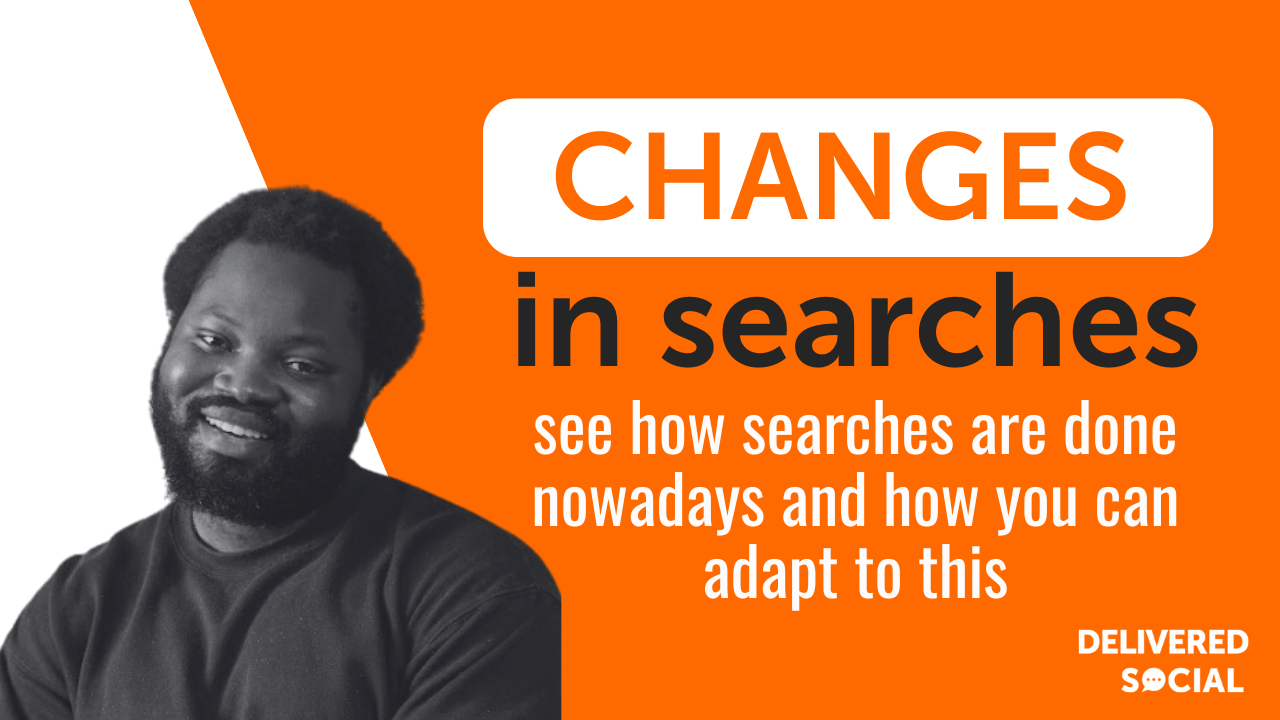
Businesses looking to dominate search engines in 2025 need to understand the difference between GEO vs. SEO in marketing. While traditional SEO (Search Engine Optimisation) has long been the go-to strategy for ranking on platforms like Google and Bing, the rise of Generative Engine Optimisation (GEO) is transforming how search results are delivered.
With AI-driven search tools like Google SGE (Search Generative Experience), Bing Copilot, and ChatGPT, users no longer rely solely on traditional search engines to find information. Instead of simply ranking pages, AI-generated search results pull from multiple sources to create direct, conversational answers. This means that if your business isn’t optimised for GEO, you could be left out of AI-generated search responses entirely.
A study by Gartner predicts that by 2026, 80% of internet users will engage with AI-driven search assistants instead of typing traditional queries into search engines. This shift means businesses must optimise their content not just for search rankings, but also for AI-generated responses.
So, what’s the key difference? SEO helps websites rank higher in traditional search engines, while GEO ensures that content is visible in AI-powered search results. The real advantage comes when businesses use both strategies together.
In this article, we’ll explore:
What is GEO?
How does it differ from traditional SEO?
How to optimise your content for AI search results
How SEO and GEO can work together for maximum impact
By the end, you’ll understand why businesses that fail to adapt to GEO vs. SEO in marketing may struggle to stay visible online and how you can get ahead of your competitors today.
What Is GEO?
Generative Engine Optimisation (GEO) is the next evolution of search marketing, designed to optimise content for AI-driven search engines and generative AI tools. Unlike Search Engine Optimisation (SEO), which focuses on ranking web pages on traditional search engine results pages (SERPs), GEO ensures that AI-generated responses include your content.
Understanding Generative Engine Optimisation (GEO)
With the rise of AI-powered search tools such as Google’s Search Generative Experience (SGE), Bing Copilot, and ChatGPT, search engines no longer simply list websites; instead, they generate direct responses by pulling information from various sources. This shift reduces user reliance on traditional search results, meaning businesses that fail to optimise for GEO risk losing visibility.
According to a 2023 HubSpot study, over 60% of internet users now trust AI-generated responses over traditional search results. This shift demands a new approach, businesses must ensure that their content is structured in a way that AI systems can easily understand, extract, and feature.
How GEO Differs From SEO
- SEO (Search Engine Optimisation): Focuses on ranking websites higher on Google, Bing, and other search engines through keyword placement, backlinks, and technical optimisation.
- GEO (Generative Engine Optimisation): Ensures AI search engines recognise and use your content in AI-generated answers, increasing visibility in AI-curated search results.
How AI Decides What Content to Display
Generative AI tools prioritise content that is:
Credible – Backed by authoritative sources and well-cited references.
Conversational – Written in a clear, direct, and informative way.
AI-Friendly – Structured in a format that AI can easily parse, such as FAQs, concise summaries, and structured data markup.
Why GEO Matters for Businesses
Businesses that depend on organic search traffic must adapt to GEO-friendly strategies to maintain visibility in the AI-driven search landscape. If AI-powered search tools do not recognise your content as a relevant source, your website will struggle to appear in AI-generated responses, leading to fewer clicks and conversions.


How GEO Affects Keyword Research And Content Strategies
Generative Engine Optimisation (GEO) is changing the way businesses approach keyword research and content creation. Unlike traditional SEO, where the focus was on keyword density and backlinks, GEO prioritises intent-based, conversational queries that AI-driven search engines prefer.
The Shift from Keywords to Search Intent: Traditional SEO relies on specific keywords to match user queries. However, AI-powered search engines like Google’s Search Generative Experience (SGE) and ChatGPT-driven Bing analyse search intent rather than just keyword matches.
Instead of just optimising for exact keywords, businesses must focus on semantic relevance:
- Old SEO Approach: Targeting keywords like “best SEO agency in London.”
- GEO Approach: Optimising for conversational phrases, such as “What is the best SEO agency in London for small businesses?”
A 2024 study by Ahrefs found that content optimised for natural language queries saw a 35% increase in AI-generated search rankings compared to traditional keyword-heavy content.
Long-Tail Keywords and AI Search Queries: GEO thrives on long-tail keywords, as AI search tools favour queries that sound like real human conversations. Businesses must now focus on question-based and intent-driven searches rather than short, competitive keywords.
For example:
- Old SEO Focus: “SEO agency London”
- GEO Focus: “How can an SEO agency in London improve my website rankings?”
Using long-tail, intent-based keywords makes content more AI-friendly, increasing the chances of appearing in AI-generated search results.
Conversational Content is King: AI search engines process content contextually, meaning businesses must write in a conversational tone that aligns with how users ask questions.
GEO-driven content should:
- Use natural, easy-to-read language rather than keyword stuffing.
- Include FAQs, Q&A sections, and discussion-based content.
- Answer direct, specific questions that users might ask AI-powered search engines.
A 2024 HubSpot report revealed that blogs using conversational, question-based formats were 48% more likely to be featured in AI search snippets.
Content Clustering for AI-Driven Search: GEO also impacts content structuring. Instead of standalone blog posts, businesses must focus on topic clusters, where related pages support a main pillar page.
For instance, a GEO-optimised content strategy for an SEO agency might include:
- Pillar Content: “How GEO is Changing SEO in 2025”
- Supporting Articles:
- “The Role of AI in Search Ranking Algorithms”
- “How Conversational Search is Replacing Traditional Keywords”
- “Optimising Website Content for AI-Generated Search Results”
This interconnected content strategy boosts authority and makes it easier for AI search tools to understand relationships between topics.
As GEO transforms search behaviour, businesses must shift from traditional keyword-based content to a more conversational, intent-driven approach.
The Future Of GEO Vs. SEO In Marketing
The evolution of search engines has brought about a significant shift in digital marketing, with Generative Engine Optimisation (GEO) and traditional SEO now competing for dominance. Businesses that fail to keep up with AI-driven search engines risk losing visibility, while those who integrate both GEO and SEO can stay ahead of their competitors.
1. Traditional SEO is Not Going Away – But It’s Changing: While AI-powered search engines are taking over, traditional SEO tactics are still relevant. Google’s core ranking factors—backlinks, content relevance, and technical SEO—still hold weight. However, the way search engines interpret content is evolving.
- AI models are now generating direct answers instead of displaying a list of links.
- Voice search and conversational queries are becoming more dominant.
- Content optimisation is shifting toward natural language responses rather than keyword stuffing.
This means businesses must optimise content for both AI-driven and traditional search algorithms. Those who ignore GEO’s rise in search marketing may find themselves losing rankings to AI-preferred sources.
2. GEO is Revolutionising Content Discovery: Unlike SEO, which depends on manual keyword optimisation, GEO focuses on AI-assisted content recommendations. This means search engines will:
- Extract the most relevant answers from multiple sources.
- Prioritise conversational and user-friendly content.
- Reduce reliance on backlinks and keyword-heavy text.
For businesses, this is a major shift. Traditional SEO rewarded highly optimised web pages, but GEO prioritises engagement-driven content. Businesses must now focus on conversational and AI-friendly content to maintain their online visibility.
3. Adapting to the Hybrid Search Model: As GEO continues to reshape digital marketing, brands must prepare for a hybrid search model that combines both AI-driven and traditional search results.
Key strategies to adapt include:
- Creating conversational content that answers AI-generated queries.
- Prioritising authoritative and verifiable sources to earn AI validation.
- Using AI-friendly formatting, such as FAQs, bullet points, and structured content.
- Focusing on user intent rather than keyword frequency.
Businesses that combine GEO and SEO strategies effectively will see higher rankings, increased traffic, and stronger engagement rates. Those who fail to adapt risk falling behind in the AI-driven search revolution.

The Best Of Both Worlds: GEO And SEO With Delivered Social
Let’s be real—search is changing faster than ever. Traditional SEO alone won’t cut it anymore, and AI-driven search is shaking things up in ways we never imagined. Businesses that rely only on one strategy are setting themselves up for failure. That’s why the smartest move right now isn’t choosing between GEO and SEO—it’s using both.
At Delivered Social, we don’t just keep up with trends; we stay ahead of them. We’re not just another SEO agency, we’re a team that understands the power of AI-driven search and how to blend it with proven SEO techniques. Whether it’s optimising for Google’s algorithms or making sure your content is picked up by AI-generated search results, we ensure your business gets seen by the right audience, at the right time.
Here’s why businesses trust us:
- We combine GEO Vs. SEO in marketing to help you rank higher and stay ahead of competitors.
- We optimise your content for both traditional search and AI-driven results.
- We create long-term strategies that work no matter how search engines evolve.
At the end of the day, your business needs visibility, traffic, and conversions. That’s what we do best. If you want to future-proof your online presence and make sure your brand isn’t lost in the AI revolution, we’re here to help.
Let’s talk about getting your business ahead with GEO and SEO—drop us a message at Delivered Social today!
For a deeper understanding of how AEO (AI-Optimised Search) and SEO compare in 2025, check out our article on AEO Vs SEO in 2025: Which Strategy is Right for Your Business?. This guide will help you navigate the evolving world of search optimisation and determine which approach will best suit your business goals in the AI-driven search landscape.
Interested In Working Together?
Introducing Delivered Social. We’re The Most-Rated Digital Agency In Surrey & Hampshire – We’ve Got To Be Doing Something Right.
Delivered Social is a digital marketing agency with one mission—to help businesses grow. We’re famous in Guildford and Portsmouth for our social clinics. We believe in free advice. We build lasting relationships because our team prides itself on being helpful, which our clients appreciate.
If you are looking for a new website or an agency to manage your social media presence, we can help.
If you need something slightly different, here's a super handy list of all our services, or you can always email us.



















